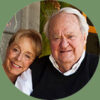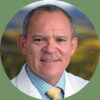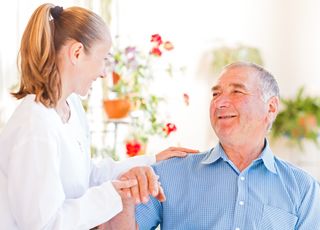Preparedness is Key
If you’ve explored this website, you’ve likely gleaned the information that as a family we have some firsthand medical trauma experiences. When our youngest son Devon was born, he required emergency surgery to correct a congenital heart defect. And then again later, when my partner Matt suffered a stroke, we had a front row seat to unexpected medical interruptions in our lives. Neither of these events were planned and the impacts they had not only on Devon and Matt, but the rest of our family were lasting. Had I known then what I know now, I would have picked up the phone and asked for help.
The basis of postoperative home care is relatively simple: preparedness is key.
This is often easier said than done. If you have a planned surgery there is a whirlwind of appointments, tests and schedule juggling to be done before you even get to the hospital. If it is an emergency situation the challenge is heightened.
Your home needs to be clean, organized and safe for you return. You’ll need a resting spot where you can comfortably sleep and have easy access to the bathroom. You might have equipment requiring an outlet, those cords need to be secured and out of your foot path. That same equipment might require a fresh infusion of ice every four hours. This means a trip to the kitchen, not something a postoperative patient wants to or should do at three in the morning. Other equipment is bulky and needs to be readjusted, and extra hand is best for this as well.
Nutrition is key to the healing process. Some foods cause inflammation, the enemy of a proper surgical recovery. If you haven’t had the opportunity to properly shop before your surgery, you’ll definitely need help with this after the fact. You won’t immediately have a full appetite so what goes in is even more important. Once your appetite returns, a nutritious meal plan is vital. Of course this sort of food plan requires thought, preparation and effort. Somebody who has training in food preparation is key in planning and executing a meal plan.
Not only is rest a fundamental component of recovery, but gaining mobility after surgery is equally important. Before being released from the hospital medical teams require a certain level of movement. A patient is only released upon reaching those goals. However, once a patient returns home they often forget the need to move. This can be compounded if the home has not been properly prepared for easy access to a clear and safe environment for activity. Following a doctor’s orders for mobility is key to proper healing.
Another area for diligent care is the monitoring of medicines. Pain maintenance is always changing, but the fact is that there will be some pain after a procedure. Nausea is often an unfortunate side effect of pain medications. Vomiting is never easy on the body and can cause additional, unwanted pain. Another scenario is an allergic reaction to the pain medications. If not properly caught, this can wreak havoc and even result in an impromptu trip to the emergency room. Neither scenario is optimal to the healing process.
These are just a few areas where postoperative home care is beneficial in a full recovery. True, they are simply enough. However, when compounded with the family system they can become quite a challenge. Focusing entirely on the patient is often not an option. Schedules, work, school can all prevent a family caregiver from this job. Asking an additional family member or friend to assist is often not option. Caregiving is emotional and physically tiring. When caring for a relative, deep emotions and even resentments can surface. An outside service such as Here to There Home Health Care can be a lifesaver for both the patient and the family.
I have seen time and again the benefits of having an educated, well trained caregiver in a postoperative situation. Knowing you have somebody in your home who is prepared to be there in the night, prepare meals and keep a loved one safe through the healing process enables the rest of the family unit to work on their own healing process (another post for another day). When our family experienced medical issues I was not aware of such agencies, had I known I would most definitely have reached out for help.








